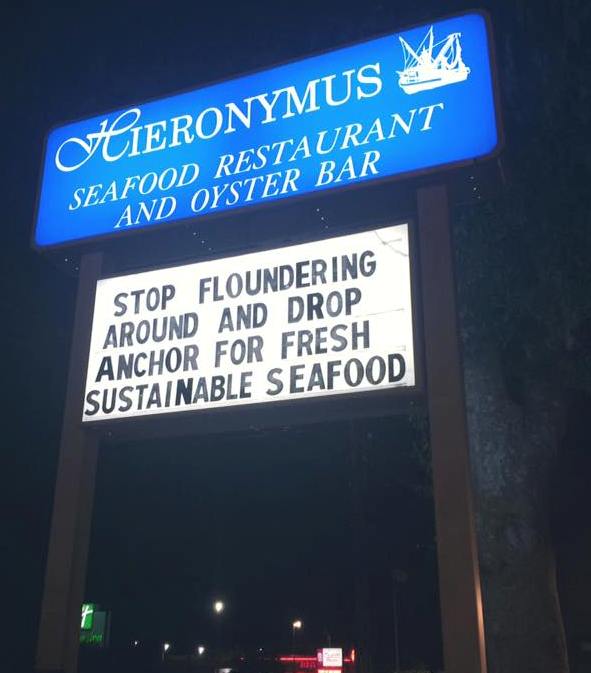Chef Taylor Bailey | Hieronymus Seafood Restaurant
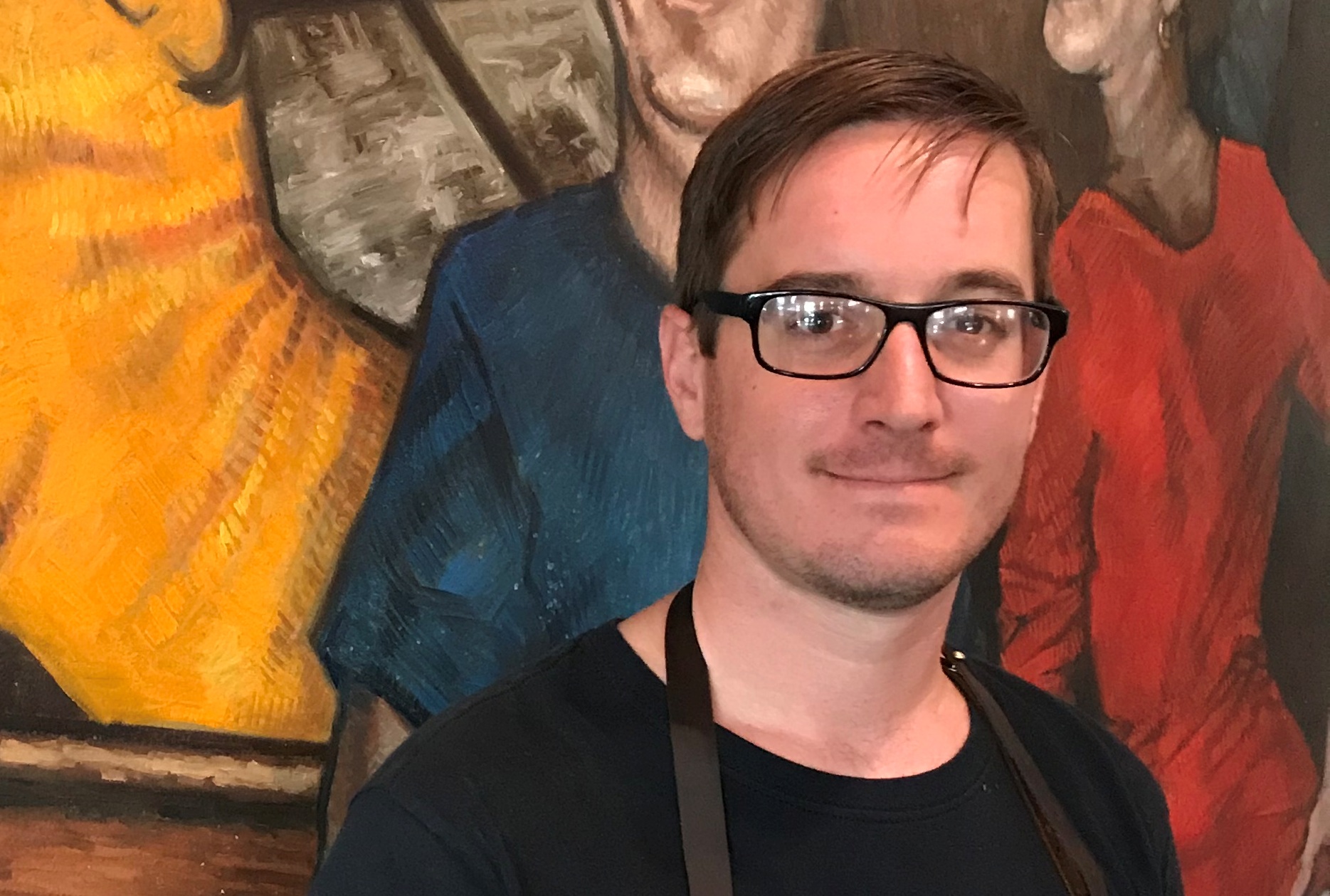
Five Minutes with Chef Taylor Bailey, Hieronymus Seafood:
“When you have a knowledge of the people involved in sourcing food products, you see how much the restaurant business can do for our local economy. That’s really important. It’s a huge responsibility. You have to be connected, otherwise this work is just mundane.“
Back to What Sparks Creativity
I started at Hieronymus in July 2009. I bounced around before I was here. I was going to CFCC. I lived on Wrightsville Beach. I thought I was done with restaurants because when I got to my early 20s, that’s pretty much all I’d done. I got my first job in a restaurant when I was 13. Had my first kitchen by the  time I was 18. By the time I was 22, I was pulling 70-80 hours weeks, and I thought that’s not what I want to do. So I did property management. And, I was going to school.
time I was 18. By the time I was 22, I was pulling 70-80 hours weeks, and I thought that’s not what I want to do. So I did property management. And, I was going to school.
I was walking down the street, going to the house, after school, and I had a friend who was working here at the time. They were short-handed, and he asked me to come help out for a couple weeks. After having taken a step back from food for awhile, and then working with owners Skip and Dawn Hames, the re-introduction re-sparked and rekindled a lot of creativity that I had lost touch with.
I was a few credit hours short of my degree in science, and thinking about a job with the North Carolina Department of Natural Resources, NCDNR. I did culinary for a bit, but I had already run an establishment that did 3.5 million dollars annually for two and a half years as the kitchen manager, and I was working three jobs, and going to school, and the jobs that I was looking at when I would exit the program didn’t match with what I had already done.
Within the industry, there are two ways of going about it. There are internship, mentorships, where you work, and how long you work there… or it’s paper. And I’d never really had a huge interest in going corporate. I’m a huge, huge, advocate of small business. I made some choices, and I thought that I could either go work for the state, or revisit what I had spent so much time doing, and reading and learning about, and all my hands-on experience. It’s a choice I made, and I’m happy I did.
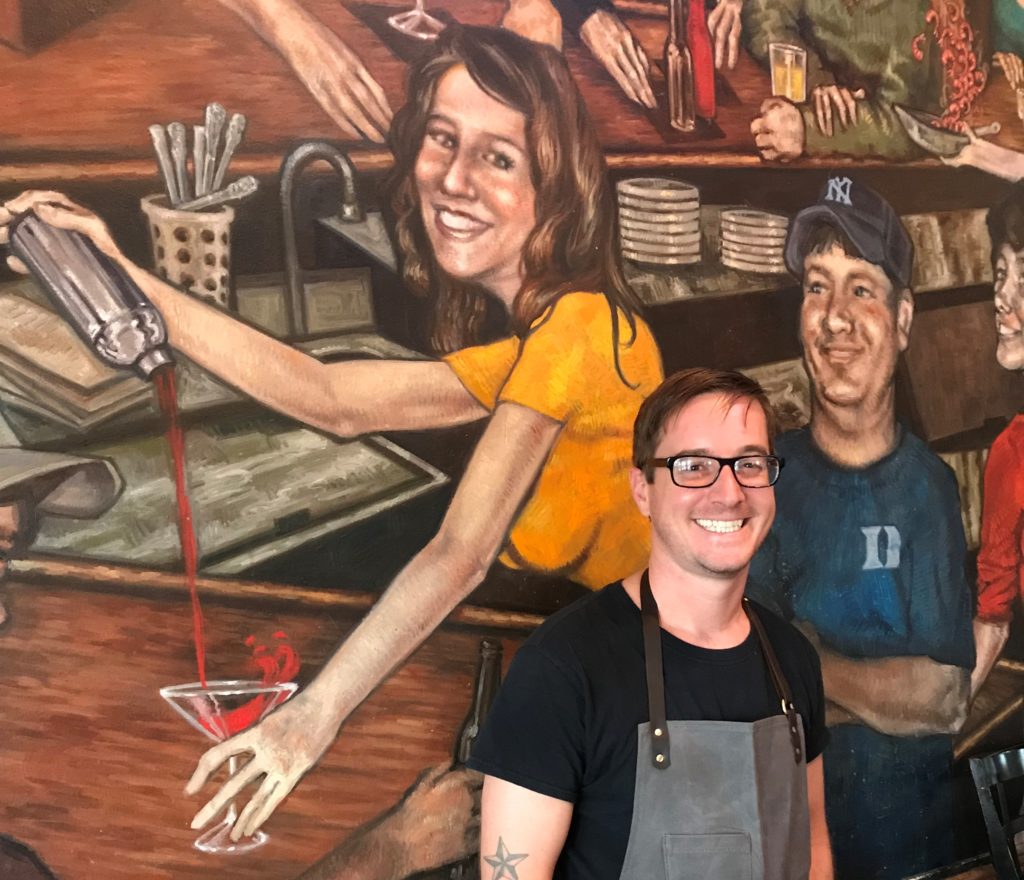
Social Responsibility, Economic Responsibility, and the Kitchen
I felt a responsibility to be here for other reasons as well. I think that there’s a social and economic responsibility from any chef at this point in the community – I started to reconnect with that.
Hieronymous is a good fit for me. Small, local business has been a staple of this community for a long time. I think that’s important. It distinguishes every place and region. What we try to serve is regional, and it’s cuisine that’s sustainable. Especially with us in this area. Southeastern North Carolina is so special because you have this agricultural basket right here, between the coast and I95. And so much coastline that is really under-utilized for local food products, in my opinion. Using as much as you can provides a community stimulus that is a fundamental responsibility, and I think people are taking notice of that.
As far as this particular model of business, it’s very fitting for the reason why I want to cook food.
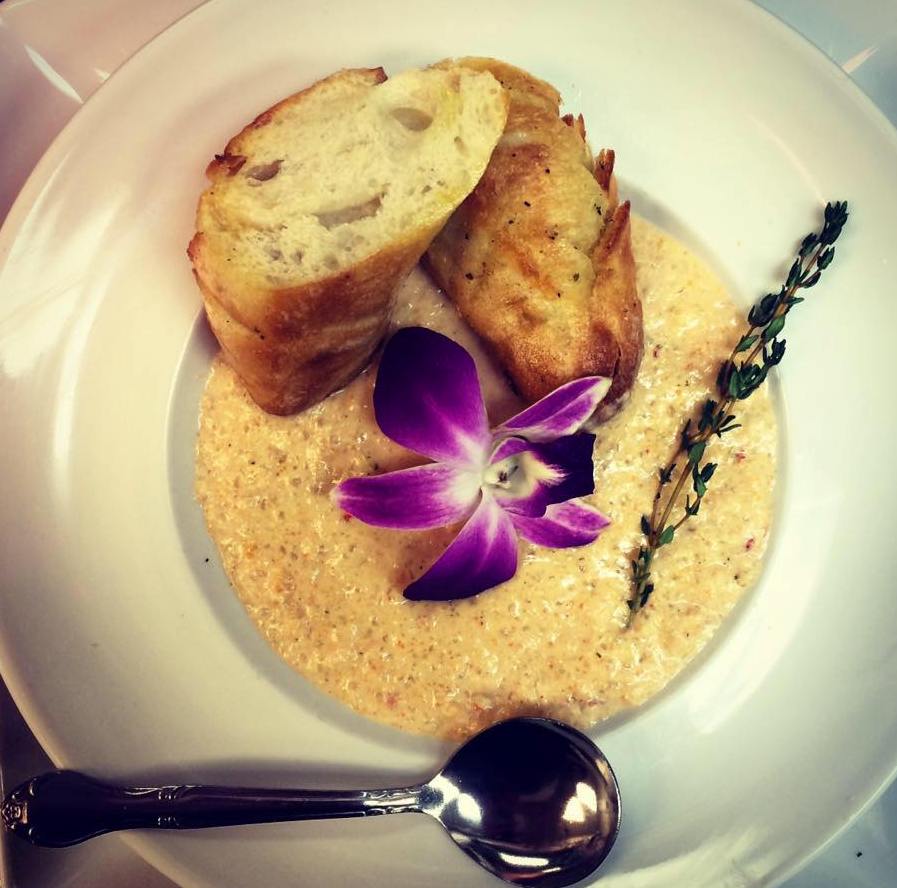
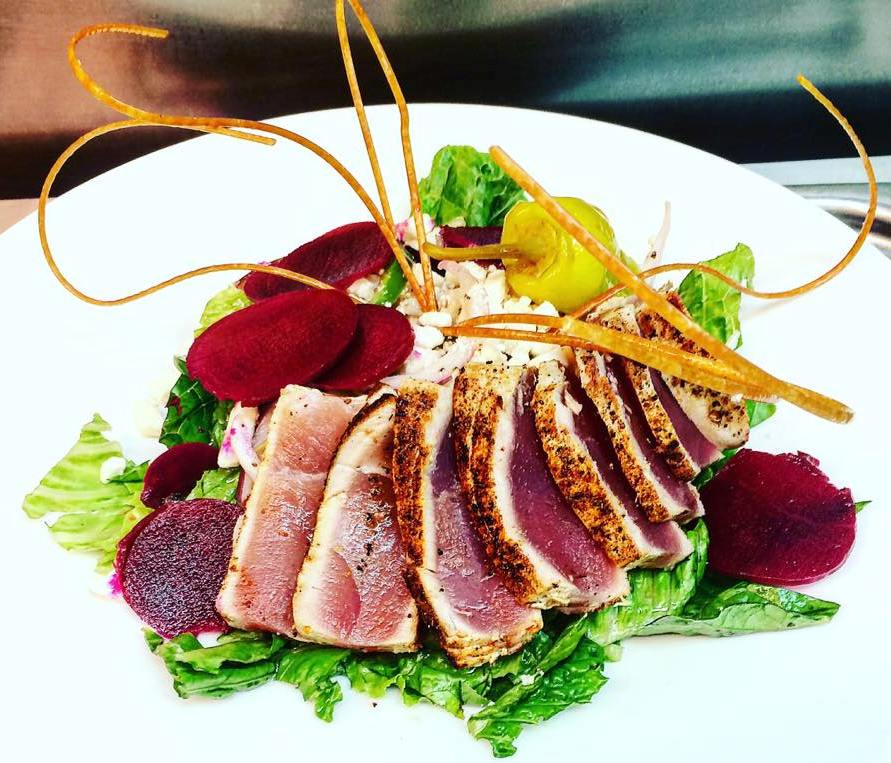
Committed to Ethical Dining
I go through phases to keep it new, and to keep it stimulating myself, and keep pushing my skills. For the past few years, cross-utilization of under-used products is really hugely important to me. For the business stand-point it’s a way to lower food costs, so, really, why not… but it’s really ethical dining. For example, we don’t buy fillets of fish. We filet all of our fish in house, which is a lot of work and a lot of labor, but we are doing it for the right reasons. Peeling and deveining shrimp: we prepare all of own shrimp. We don’t sell imported shrimp whatsoever. It’s the fundamentals and philosophies of where the products come from.
One of the things we’ve been playing off a lot with is smoking. So we get the whole grouper in. We just did this this morning. You have your fillets on the chalkboard. But you also have your smoked grouper chowder, and grouper for pate, and ceviche, and whatever special you want to do. It’s completely ethical cooking and dining: bringing that waste down to as little as you possibly can.
And then, I’ve really been getting into – because recently I’ve had more time to do this – getting in with better connections with where our products are sourced. Whether its our own farm in Columbus County, or the 3 to 4 different kinds of oysters that make it on our chalkboard. If you look, one of them is from Lea Island, and uninhabited island just south of Topsail, it’s my favorite oyster on the Eastern seaboard. My wife and I have been fortunate enough to go out there, and see harvesting of the oysters, and be more in touch with where these items are coming from. I can communicate and convey that to the customer; it separates this dining experience from the next.
Evolution of Local Dining Trends
The more that this particular area – Wilmington – commits to evolving the restaurant industry is really exciting. I don’t watch food shows, but I love to read new cookbooks. That’s my thing. I see from spending time in other areas that are very significant culinary destinations, the way that dining trends are changing here too. It’s good. It’s taken a long time. I think it’s progressively moving in the direction where we can sustain more demographic growth. It’s interesting, and it’s got a long way to go, but if you look at Charleston, and Savannah… we could do that. If you look at the agricultural hub that we have here: pork, collards, sweet potatoes. You’ve got a menu right there!
I’ve been getting into trying to understand what happens from the very beginning to the very end of every single plate that goes through that window. Having that comprehension that it’s not just a butter bean. Not just a turnip. Not just a beet. That’s what pushes me forward. Within that, having those conversations is important. I’m always learning.The biggest tragedy is every saying that you know it all. Once you do that, you’ve lost your way. Having the opportunity to tap into the wealth of knowledge from our purveyors, like the oyster farmers, is incredible. These conversations are necessary. That’s what makes the whole progression happen.
Find Chef Taylor Bailey at Hieronymus Seafood Restaurant online and like Hieronymus on Facebook too.
